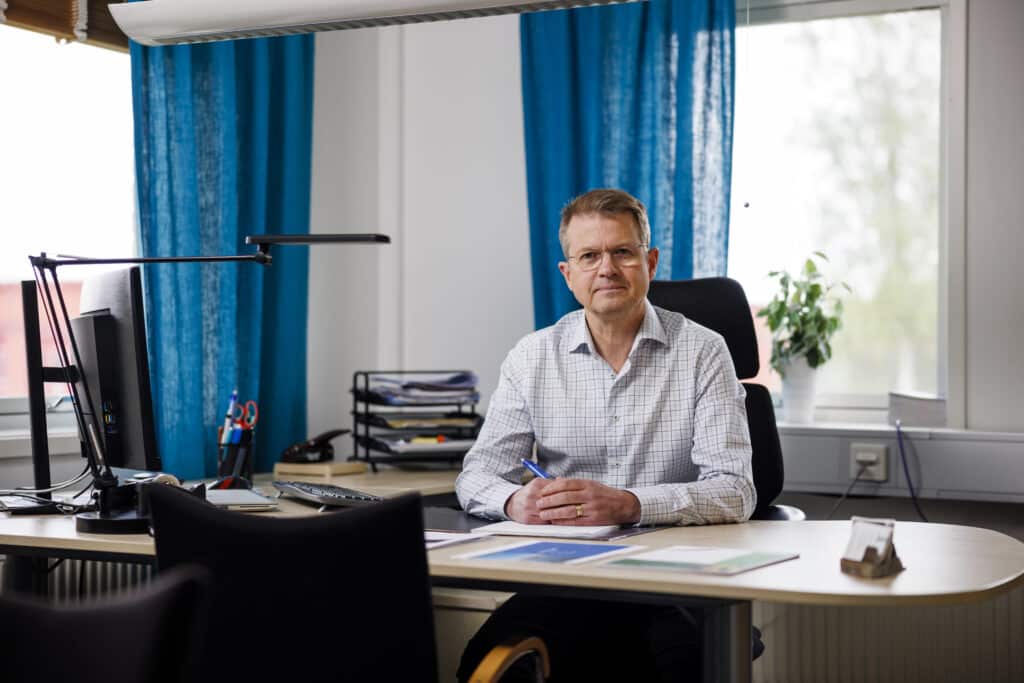The battery park will be adjacent to H2 Green Steel and is expected to be completed in 2024. It is seen as an important piece of the puzzle in the entire country’s energy transition.
Boden Industrial Park has become synonymous with H2 Green Steel’s pioneering establishment. However, more than half of the area of Sweden’s largest detailed planned industrial area (550 hectares) has not yet been developed.
Now, another major project is running, aiming to accelerate the green transition. This time, it involves strengthening the local power grid by establishing the largest battery park in the Nordic region on an area of one hectare with a capacity of 50 megawatts (MW) and 100 megawatt hours (MWh).
The 50 MW capacity refers to the maximum power that can be generated at a given time and could theoretically supply a small city with energy. The total amount of energy that can be generated and used over a specific period is 100MWh. This corresponds to the energy consumption of approximately 1,800 Swedish houses per day.
Enabling more renewable energy
The initiative directly addresses the need to increase the energy system’s flexibility and reliability as renewable energy production grows. This means that Boden’s local energy system becomes more resilient while being better at handling peak loads from the industry.
The battery park functions as a storage facility that can store energy when supply exceeds demand and quickly release energy during periods when demand increases, especially at times when solar or wind energy is not available. This contributes to reducing dependence on fossil fuels and the amount of imported electricity, a critical component in the global fight against climate change. Battery storage can also help maintain voltage quality in the power grid by offering reactive power, which is important to keep the voltage within desired limits across the network.
Energy sustainability
Bodens Energi is playing a key role in enabling the initiative, a collaboration between Vattenfall (owner of the regional grid), Bodens Energi (local grid owner) and Polar Structure (owner of the equipment).
– The region we operate in is the hub of the green industrial transition and electrification in Sweden. This requires innovative thinking and courage regarding creating an energy system that can enable the planned investments. We need to accelerate the expansion of our power grids, while we need to build more renewable electricity production and energy storage. The investment we are now making together with Polar Structure is an excellent example of the latter,” says Hans Stålnacke, CEO of Bodens Energi.
 Hans Stålnacke, CEO of Bodens Energi. Photo: Mats Engfors/Fotographic
Hans Stålnacke, CEO of Bodens Energi. Photo: Mats Engfors/Fotographic
The initiative aligns with Boden Energi’s sustainability work, focusing on creating long-term solutions that respect ecological, social, and economic perspectives. Promoting energy recovery is an example of how the energy company can contribute to a more sustainable future.
– As an energy company, we must be a driving force in the fantastic transition and we are incredibly proud to be able to contribute to one of the Nordic region’s largest battery storage facilities here in Boden,” says Hans Stålnacke.
A sub-stage
Polar Structure is somewhat of a Swedish pioneer in infrastructure solutions and already has one of the country’s largest battery parks in place in Haninge, south of Stockholm. Although this investment now means building the largest battery park in the Nordic region for the time being, they see this as a stage in a larger project.
– Battery storage is an important piece of the puzzle in the green transition and we are very happy to enable this groundbreaking battery storage project together with Bodens Energi, says Tobias Emanuelsson and continues:
– The municipality of Boden has a holistic approach to community development and infrastructure, and we are proud to contribute, not only with the railway but also with energy solutions. Strengthening the local energy system is an important key, both for the green transition and for a more resilient and sustainable society,” says Tobias Emanuelsson, CEO, Polar Structure.
Photo: Polar Structure
